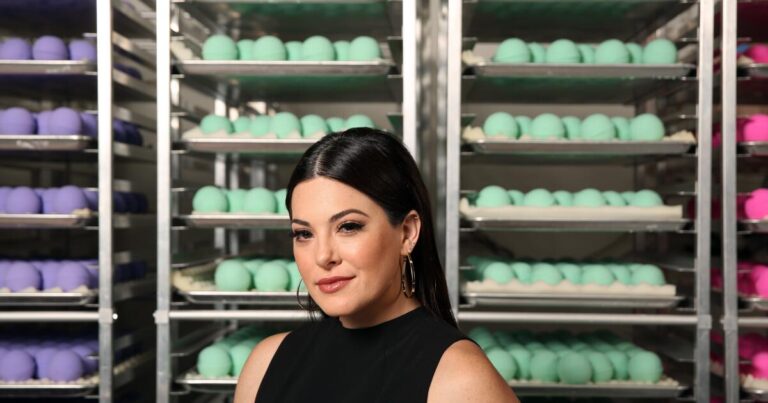For a long time, Olivia Alexander defended MedMen.
Some feared that partnering with cannabis chains would weed out smaller brands, but Alexander, who founded Kush Queen, which sells cannabis-infused bath bombs and personal lubricants, said that small brands It praised the dedication of retailers in getting products from brands onto shelves. A woman-owned line.
“Even if they are big companies, they support small brands,” she recalls telling people. “They are beneficial to our industry.”
Now she's thinking the opposite.
In March, the retailer, valued at more than $1.5 billion when it listed on the Canadian Securities Exchange six years ago, suffered a devastating downfall. A few weeks later, the company filed for bankruptcy protection in Canada, revealing more than $400 million in debt. Meanwhile, in Los Angeles County, a Superior Court judge appointed an attorney to oversee the liquidation of the company's California subsidiary.
MedMen owes money to large law firms, accounting firms, real estate companies, as well as vendors such as Alexander, which supplied retailers with the products that fill their shelves.
Tired of what she says has become an open secret in the industry, Ms. Alexander posted on LinkedIn late last year accusing MedMen of not paying her $1,560 bill for goods she delivered. More than 100 people commented, including several other entrepreneurs, saying the retail chain also owed them money, often in the thousands of dollars.
MedMen's downfall underscores a larger systemic struggle facing producers like Alexander as they seek to operate in California's legal cannabis market. The Times spoke with Alexander about MedMen and the cannabis industry as a whole. The interview has been edited for brevity and clarity.
Please tell us a little about your company. And how did you start working with MedMen?
I started Kush Queen in 2015. We build a little bit of everything and have been working with MedMen almost from the beginning. Along the way, I truly believed that we were all part of what I wanted this industry to be: diverse, fair, and vibrant.
When did things start to go wrong?
I moved to a new distribution company, and they said, “We can't sell to MedMen.” Everyone says they are about to die. ”This was the summer of 2023. But I was genuinely thinking what everyone else was thinking: They were too big to fail. So we fought with our sales partners to get these orders delivered, and of course they stopped paying us.
I went to LinkedIn and wrote a post. And I was inundated with messages from a bunch of brands saying, “Oh yeah, they owe me money'' – and this is the part that breaks my heart. My LinkedIn DMs are a graveyard of people who owe money to MedMen.
The Medmen were so afraid of me and my vileness and my vitriol that they kept me tested all night. They locked us out of a bill of only $1,500 and I truly believe I was the last person to receive payment from them.
How soon after posting did you receive the check?
Within 2 weeks. I posted a follow-up saying, “Look, I'm getting paid and all these people aren't.”
What do unpaid invoices mean, especially for small businesses?
That means companies either go bankrupt or have to lay off employees. If people think it's bad now, it's going to get worse. Everyone lives on debt. MedMen paid large sums of money to freelance writers to write blogs and articles. They are the most tragic collateral damage of what is happening.
Can you talk more broadly about the challenges of running a legal cannabis company in California today?
It's like, “How can I stop crying?” Yeah, that's tragic. It is currently impossible for anyone to make enough money with legal cannabis. If I operated only in the California market, I wouldn't have had enough money to pay my own bills. It's a loser's game. Taxes are exorbitant and they force everyone to go to the underground market. California has failed us.
How would you describe the current state of the industry in one word?
Apocalyptic.
Last month, the Department of Justice officially moved to reclassify marijuana into a less regulated substance category, which many in the industry suspect could ultimately make things easier for cannabis retailers. I'm looking forward to it.
Will the schedule changes have a positive impact on the industry? Perhaps we don't know yet. But cannabis and California couldn't be more compatible. This is our mission and we need to be leaps and bounds ahead of any other market. But it's just been culled.

